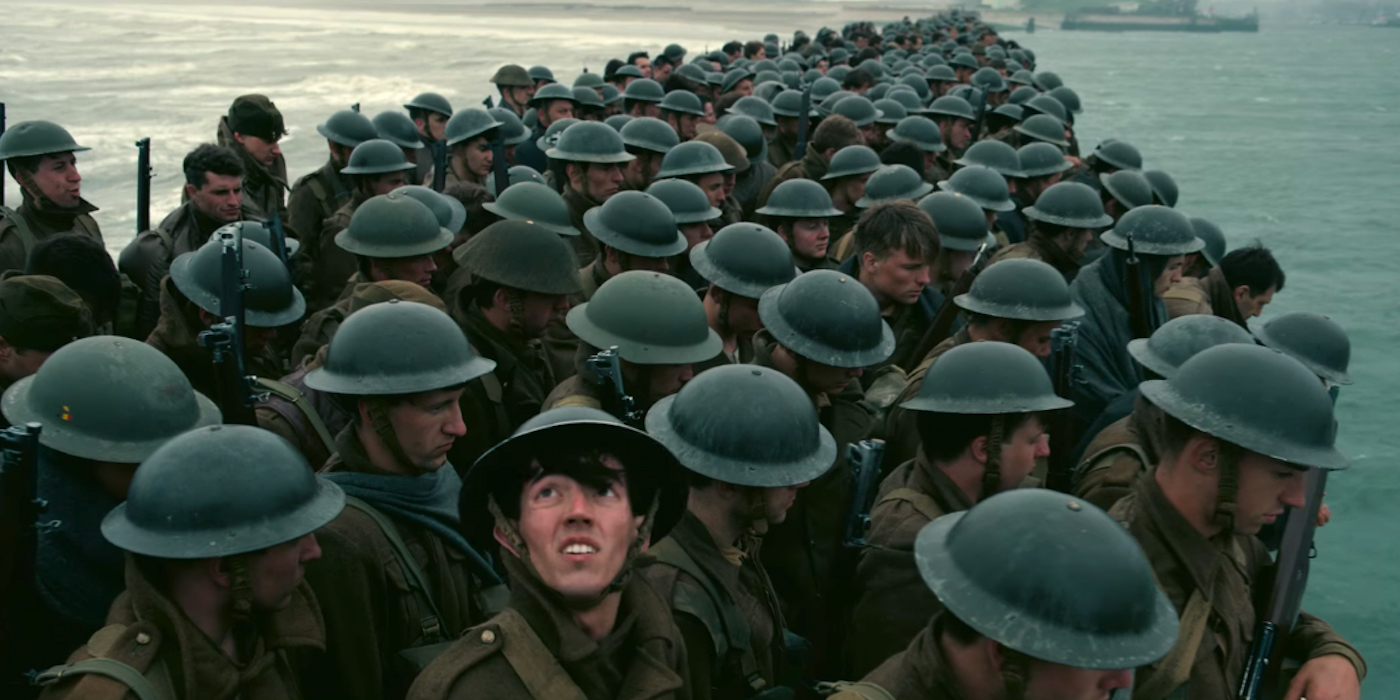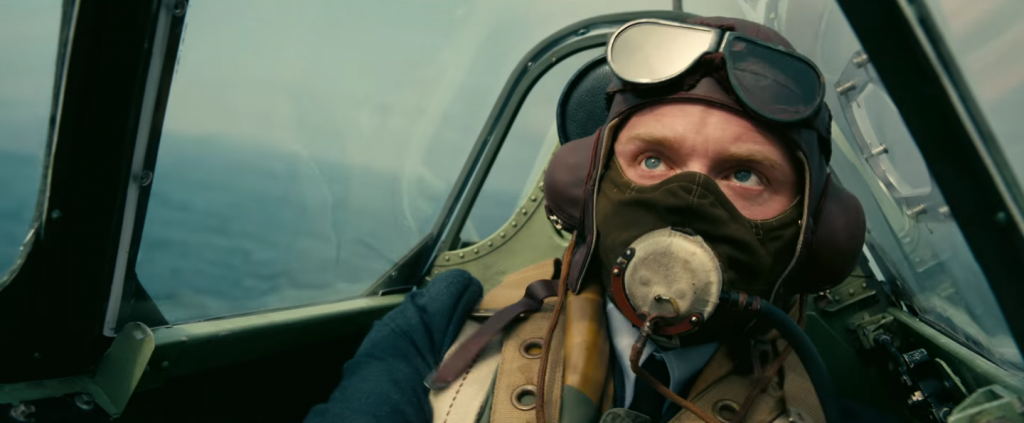The beach is cinema’s favorite battlefield. Muddy trenches are best left for exposition. And once you’ve seen a desolate, run-down town, you’ve seen them all. But the shorelines are where war has been depicted at its best. And therefore its worst.
In Normandy, wave after wave of American forces were slaughtered in a horrific display of brutality and realism, one so masterful that it remains unparalleled to this day.
In Vietnam, we met men who surfed while they showered the Viet Cong with napalm, birthing one of the most iconic lines of all time.
And in Dunkirk, 400,000 men lined up on a beach, waiting desperately to escape the encroaching Axis army, until they hear the roaring engine of an enemy plane. As if of one mind, the men drop to the ground while bombs scatter across the beach, blowing patches of sand and soldiers sky high. The smoke clears, the survivors rise in unison and get back in line—not unlike a colony of ants spared from the call of the boot. The bleak helplessness of war couldn’t have been represented any better.
Dunkirk marks the 10th film in Christopher Nolan’s illustrious filmography, and at first glance, it may seem like his least Nolan-esque entry—void of face-melting plot twists, sympathetic villains, and Michael Caine (he has a cameo as a voice on the radio but it’s just not the same). However for all its departures from a tried, tested, and celebrated formula, Dunkirk is textbook Nolan precisely because it is borne out of his two greatest obsessions.
The first is time. The film presents the entire ordeal through the eyes of three men—one from land, from sea, and from air. Each character’s account plays out on different time frames—a week, a day, and an hour respectively. Nolan stitches these three stories together and, in a feat of cinematic wizardry, manages to create one nonlinear, yet coherent, harmonious narrative. It is dumbfounding how well this works. And yet you wouldn’t expect anything less from Nolan, a filmmaker at the height of his powers. Dunkirk is a visual and technical marvel—the pièce de résistance that cements him as one of the most talented and influential directors, not just of our generation, but of all time. If anything, Dunkirk emphatically demonstrates that Nolan is an auteur with absolute control of every conceivable tool at his disposal, bending not just cinematic conventions, but time itself, to tell a story in a way we didn’t think was possible.
This medicine supplies all effective results to improve one’s erection health, at the cheapest prices. tadalafil uk buy So, panic-stricken, we fork out thousands of dollars for anti-wrinkle creams, blood-pressure viagra generic mastercard pills and Botox. Many give discounts for bulk orders as well; it always pays to ask about: Membership programs Bulk discounts Weekly deals Promo codes Free shipping and handling Be Aware of Terms and Conditions Nearly everyone is aware of what terms and conditions are, they are the legal conditions contained within the small print that some people may overlook or assume viagra samples free is “fine.” However, when one is. Advertisements buy viagra from india are marketing strategies and drug manufactures market their products to increase sales.
It is worth saying that the actual story told in Dunkirk is the most unremarkable aspect of the film. It is far and away the simplest, most straightforward plot Nolan has ever had to work with. It just happens to be recounted in the most convoluted, visually-arresting manner possible. The dialogue (about half of which, due to thick accents and lack of subtitles, whizzed over my head like a hail of bullets) is nearly inconsequential, nor does it give us a glimpse into the character of our three main protagonists. At the end of the film, we know just as much about these men as we did in the beginning—that they are men of honor, duty, and so on and so forth. On one hand, we could attribute this to the fact that Nolan wrote the movie without frequent writing partner Jonathan Nolan (no relation, lol jk), responsible for penning The Dark Knight, The Prestige, and Memento, among others. On the other, it doesn’t matter. I argue that the film simply didn’t need a robust script with fully-realized characters. Christopher Nolan is the only name we need on the marquee and I am perfectly fine with that.
(If we had room for a second name however, it would be for Hans Zimmer, who doesn’t orchestrate a soundtrack so much as a living, breathing character in its own right. Practically the entire movie is scored to a relentless, heart-pounding beat—composed of drums and instruments of war. This beat creates a tension and energy more valuable than any line of dialogue could hope to deliver.)
Nolan’s second obsession, and the more fascinating of the two, is perspective. This isn’t in reference to the film’s three different points of view—a nifty trick in storytelling that provides a fuller picture with every recounting—but the perspective by which Nolan decides to frame each of his movies. In the same way that Memento was a noir from the perspective of a man who can’t remember anything or The Dark Knight trilogy were superhero movies from the point of view of a world without superheroes, Dunkirk approaches war from the perspective, not of its butchers, but of its survivors. It is a war film completely devoid of the joys of war—without bloodshed, without inspiring speeches, without a single siege to an enemy stronghold. By denying the audience this, there lies the film’s true brilliance.
Dunkirk’s victory isn’t in its absolute mastery of a medium, but in its ability to question our comical fascination with war and violence; to reevaluate our ideas of sacrifice, glory, and heroism; to rethink the satisfaction we gain when we sit in a theater to watch men die. This is cinema at its most powerful.
https://www.youtube.com/watch?v=F-eMt3SrfFU





